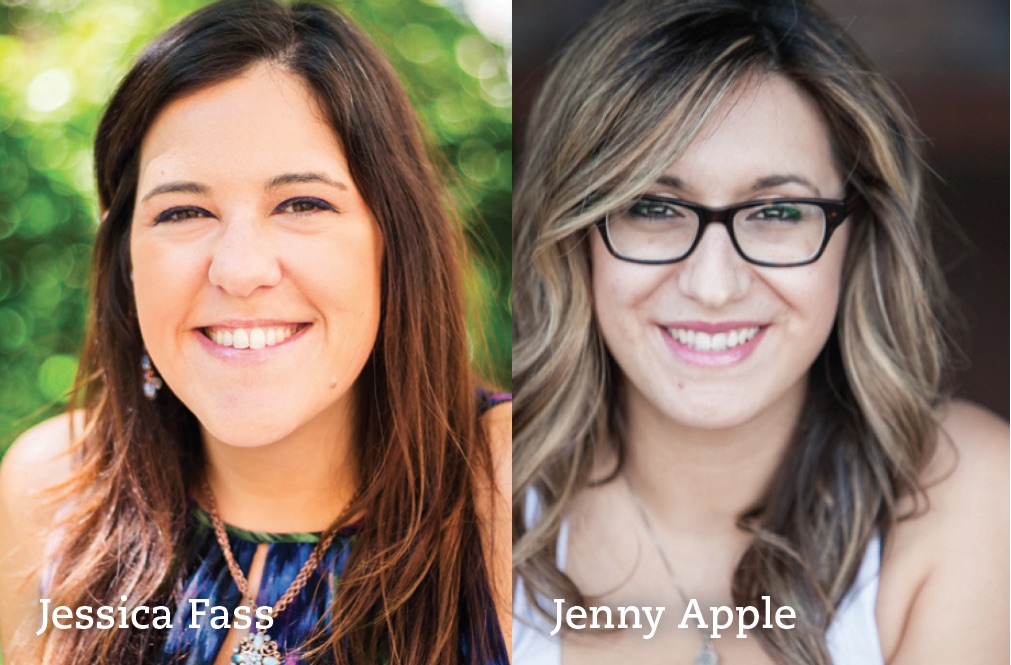
In Anatevka, fictional young women yearned for a match who, for Papa, should be a scholar and, for Mama, as rich as a king. In 21st-century Los Angeles, matchmaking is different from how it was portrayed in “Fiddler on the Roof,” but is alive and well, bringing single citizens together for serious relationships.
“The best feeling in the world is making a match,” said Jenny Apple of Jenny Apple Matchmaking, who started introducing people in 2013.
“Our clients like that we’re coaches, friends and mentors all rolled up ino one,” said Jessica Fass, of Fass Pass to Love.
Apple, who attended high school in Calabasas, launched her business after years of programming Jewish events. She offers matchmaking, dating consultations and coaching.
Fass, who grew up in Northridge, got into professional matchmaking in 2013 after making three matches on her own, which, according to Jewish legend, earned her a place in the World to Come.
Apple has matched 10 couples who have gotten married or are in long-term relationships. Two of the married couples now have children. Fass, who specializes in international matches, has matched six couples for marriage and two couples who are in a long-term relationship. And through their work, they’ve set up hundreds of first and second dates with local and international singles seeking partners.
Matchmaking isn’t as simple as pairing two single people, Fass and Apple explained in a joint conversation with the Journal. Matchmakers have to get to know their clients really well before they go on a date. Clients fill out a questionnaire, which generally is followed by a personal consultation. (Fass and Apple both focus on matching heterosexual couples; they connect LGBTQ singles to another matchmaker in their network.)
“Singles I’ve met with who are not successful are obsessed with the fantasy.” — Jenny Apple
To understand clients’ goals and outlook, Fass asks where clients see themselves in five years and what they consider a fun date. “Most smart people just say: ‘It doesn’t matter what I’m doing, as long as I’m with good company/the right person.’ That’s the smartest response and the truest in my book,” Fass said.
Fass helps clients plan the date and asks them to write down everything afterward. A few days later, she interviews both parties and provides feedback. Fass noted that attending events with clients helps her see how they interact in person.

Traditionally, making Jewish matches is considered a mitzvah, and only when matches lead to marriage are matchmakers paid. But matchmaking is hard work, and today’s matchmaking professionals want to get paid.
“You orchestrate the date like a producer,” said Fass, who formerly worked in television as an on-set assistant and script manager. “We have to educate people that it’s a service that you pay for up front.”
High-end matchmakers can command fees of $15,000 to $20,000 or even more. Apple and Fass charge about $5,000 for matchmaking services but offer dating coaching and consulting for less.
The matchmakers don’t see dating apps as competition; they’re just part of the dating industry landscape.
“I’m a huge advocate for online dating,” said Apple, who used JDate when she was single and met her husband on JSwipe (now owned by JDate).
Fass echoed Apple’s enthusiasm. “I used to use [JDate] back in the day when there were no apps.” In Israel, she used Tinder and OKCupid, because there, “everyone’s Jewish.” Now, she said, “clients and people I talk to at events say, ‘No one’s on JDate and JDate sucks’ — I believe they [dating apps] all work, you just have to invest time in it. But millennials would all rather be on swipe apps.”
Dating apps make people think “it’s the boyfriend/girlfriend store and there are endless options,” Fass said, but with the apps’ high potential for miscommunication, “we need to just get you on the freaking date.”
Clients should treat app matches like “a hot sales lead,” she added. “If you have time to get on the phone, just talk … you see instant results.” Fass stated a preference for sites like Match.com and eHarmony.com, where people can share and learn more about each other.
In today’s Jewish matchmaking, dating and partner preferences skewer the layers of traditional community expectations, idealized dating scenarios and contemporary realities like financial stability.
Apple noted that entrepreneurs say they want women who are busy, but not too busy for them. Fass said that beyond “Jewish,” her male clients are looking for someone “attractive to them,” for a “nonjudgmental place to land when they come home,” and for partners with some kind of passion, like volunteering. Some want to be the sole breadwinner others understand that many families need two incomes.
The women Fass has seen are looking for men with a good or at least stable, job, a sense of humor, and someone who’s physically attractive to them, but notes that she’s seen attraction grow for women (but less often for men). Women are often picky about height, Apple added, and although women say “sense of humor” is a priority, matchmakers often have to find out what that really means.
“Remember not to judge height, age or location,” Fass said. “There are only so many Jews in the world who have the same religious level as you. You need to cut some things off your list. Also, Jews like to eat! Our mothers are the best cooks in the world. So stop judging weight.”
One client of Apple’s would accept only dates with oval-shaped faces. “he was not attracted to a round face. I never heard that before.” Fass had one client who insisted that all of his dates wear dresses. “You can’t force someone to wear a dress,” she said.
“Singles I’ve met with who are not successful are obsessed with the fantasy,” Apple said.
While Apple and Fass are not business partners, they often collaborate on events — their next one is on Feb. 11 — and are fiercely committed to singles.
“Being married isn’t the cure and being single isn’t a disease,” Apple said.
Apple added that singles should take a multipronged approach — attending events, or hosting their own singles gatherings, in addition to hiring a matchmaker. She also notes that singles 40 and older is “a growing niche” that needs more programming.
Fass and Apple believe that there’s a match for everyone, with some caveats.
“We are always trying to make our clients happy but make them understand what is a healthy and happy relationship. It’s OK to be picky about things that you want, but do you know what’s important in a long-term monogamous relationship?” Apple said. Negativity toward a match, sometimes even before a first meeting, can be lethal, she said. “Love’s about giving and not taking.
In terms of a match’s potential, Fass keeps it simple: “Could you see yourself kissing them, and do they make you feel good? Then go for a second date.”
No matchmaker can guarantee love. But, Apple said, “we’re there to give you the best options in the most realistic way possible.”
“We can introduce you to your perfect match,” Apple said, “but you have to be open.”






















 More news and opinions than at a Shabbat dinner, right in your inbox.
More news and opinions than at a Shabbat dinner, right in your inbox.